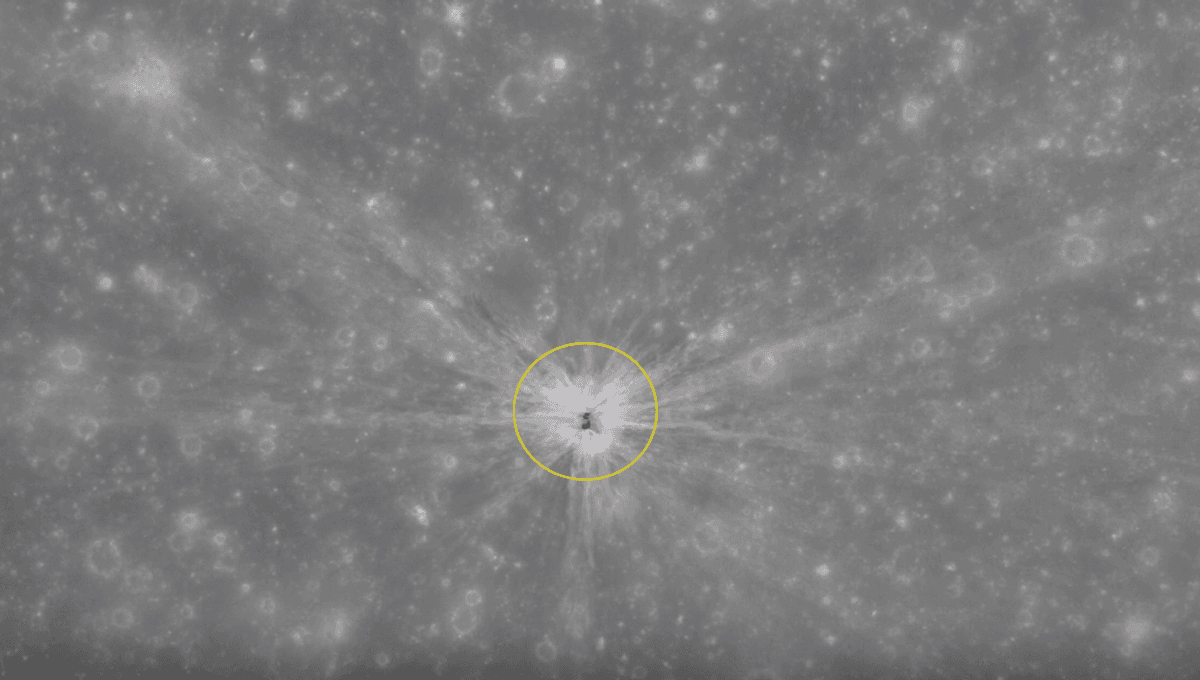
On the Moon, as well as several robots, some tardigrades, and a family photograph, you will find 96 bags of human poop and other assorted space trash. There are so many signs of human interference on our favorite satellite, in fact, that a team including an archaeologist, an anthropologist, and a geologist have made the case that the Moon has entered a new epoch.
“Our species first appeared in Africa around 300,000 years ago, and after a series of fits and starts, we successfully populated every continent (except for Antarctica) by ~16,000 years ago,” the team writes in a piece published in Nature Geoscience, adding that since then humans have “re-ordered life on Earth, [and] altered the atmosphere and oceans.
“Currently we are undergoing our next major range expansion: the peopling of our Solar System. But rather than stone tools and hearths, we leave behind human footprints, rovers and rover tracks, landers, and various scientific equipment,” they continued, adding, “as we enter the next space race, one characterized by private companies offering access via space tourism and plans for industrial mining, we argue that it is time to discuss whether Earth’s Moon has also entered its own ‘age of humans’ – a Lunar Anthropocene.”
According to the team, labeling the latest period the Anthropocene is a “reactionary response”. As we return to the Moon and beyond, they argue that we should consider activity and modifications – e.g. NASA’s planned lunar base – as part of the Lunar Anthropocene.
“The idea is much the same as the discussion of the Anthropocene on Earth – the exploration of how much humans have impacted our planet,” lead author Justin Holcomb, a postdoctoral researcher with the Kansas Geological Survey at Kansas University, said in a press release.
“The consensus is on Earth the Anthropocene began at some point in the past, whether hundreds of thousands of years ago or in the 1950s. Similarly, on the moon, we argue the Lunar Anthropocene already has commenced, but we want to prevent massive damage or a delay of its recognition until we can measure a significant lunar halo caused by human activities, which would be too late.”
Though humanity’s impact may appear minimal – after all, only 12 people have ever walked on its surface – with other forces altering its geology, the impact is significant.
“Cultural processes are starting to outstrip the natural background of geological processes on the moon. These processes involve moving sediments, which we refer to as ‘regolith,’ on the moon. Typically, these processes include meteoroid impacts and mass movement events, among others. However, when we consider the impact of rovers, landers and human movement, they significantly disturb the regolith,” Holcomb explained. Our impact is likely only to increase.
“In the context of the new space race, the lunar landscape will be entirely different in 50 years. Multiple countries will be present, leading to numerous challenges. Our goal is to dispel the lunar-static myth and emphasize the importance of our impact, not only in the past but ongoing and in the future. We aim to initiate discussions about our impact on the lunar surface before it’s too late.”
The hope is that by highlighting humanity’s potential for negatively impacting the Moon’s environment and labeling the new epoch the Lunar Anthropocene, it will help shape discussions around future missions.
“We know that while the Moon does not have an atmosphere or magnetosphere, it does have a delicate exosphere composed of dust and gas, as well as ice inside permanently shadowed areas, and both are susceptible to exhaust gas propagation,” the team added. “Future missions must consider mitigating deleterious effects on lunar environments.”
The study is published in Nature Geoscience.
Source Link: Lunar Anthropocene? The Moon May Have Entered A New Epoch